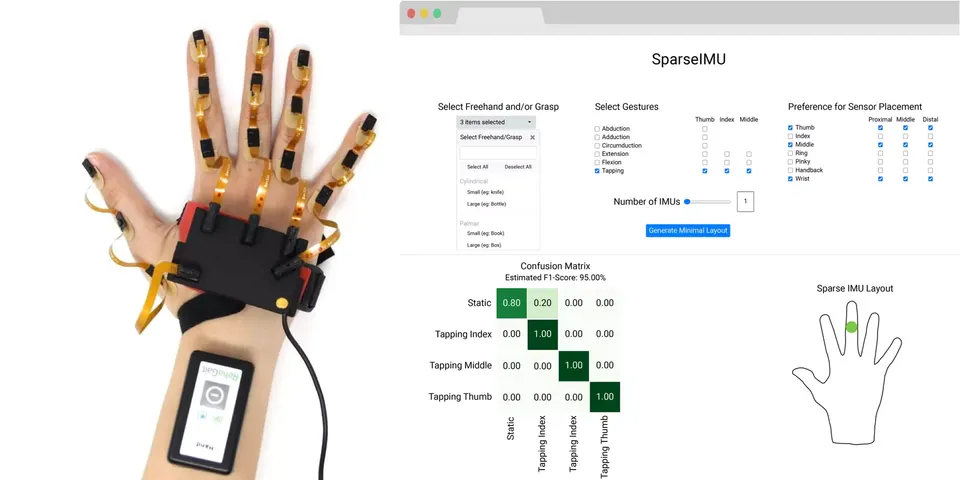TOCHI '22.
This was work done with Dr. Jürgen Steimle and Adwait Sharma from Saarland University, during my research internship from May 2020 to June 2021
Microgestural interactions enable always-available input both while grasping everyday objects and with free-hands. To sense such gestures, minimal instrumentation of the hands is desirable. However, the choice of an effective but minimal IMU layout is challenging, due to the complex, multi-factorial space of finger gestures, grasps and objects. We propose SparseIMU, a rapid method for designing minimal inertial sensor-based layouts for effective gesture recognition. Furthermore, we contribute a Computational Tool to guide designers with optimal sensor placement. Our approach builds on an extensive Microgesture Dataset that we collected with a dense network of 17 inertial measurement units (IMUs). We performed a series of analyses, including an evaluation of the entire combinatorial space for Freehand and Grasping microgestures (393K layouts), and quantified the performance across different layout choices, revealing new gesture detection opportunities with IMUs. Finally, we demonstrate the versatility of our method with four scenarios.
Citation:
Adwait Sharma, Christina Salchow-Hömmen, Vimal Suresh Mollyn, Aditya Shekhar Nittala, Michael A. Hedderich, Marion Koelle, Thomas Seel, and Jürgen Steimle. 2022. SparseIMU: Computational Design of Sparse IMU Layouts for Sensing Fine-Grained Finger Microgestures. ACM Trans. Comput.-Hum. Interact. Just Accepted (October 2022). https://doi.org/10.1145/3569894


